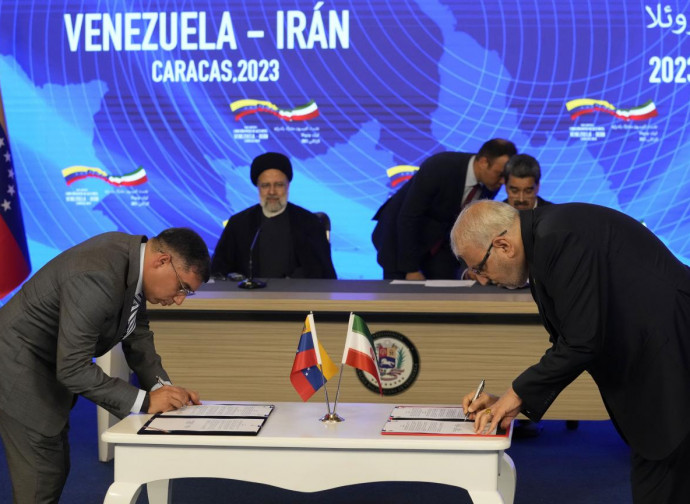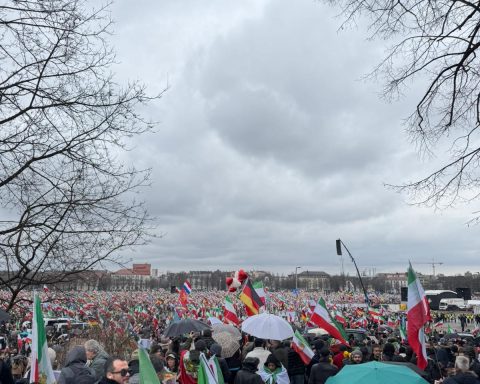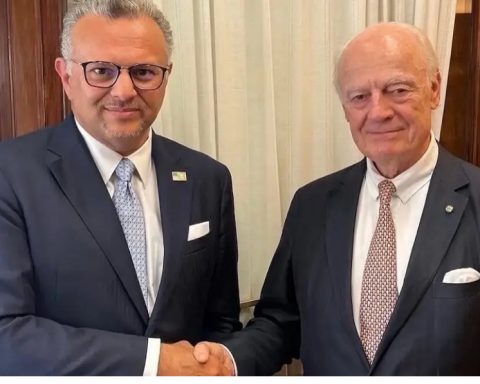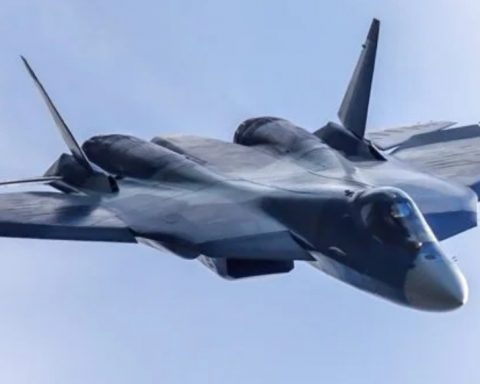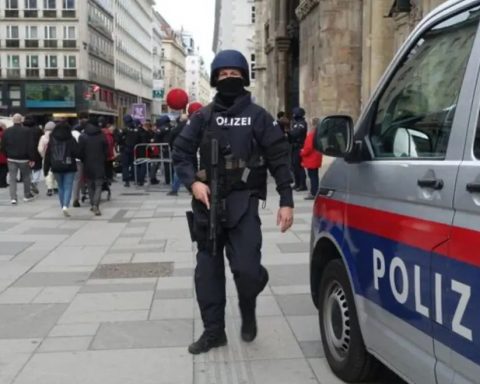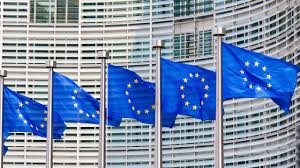During the trip Raisi emphasized the evolution of Latin America, in the past considered “the backyard of Americans”, towards a recovery of independence by each country. He emphasized a growing ‘harmony’ between the Iranians and the Latin American people after the 1979 Islamic Revolution, citing a common spirit and ideals. However, Iranian efforts to penetrate the region are not limited to diplomatic relations.
According to a study conducted by the International Institute for Counterterrorism (ICT), Iran receives support from terrorist organizations and pro-Iranian groups to expand its ideological influence in Latin America. Hezbollah is deeply involved in fundraising, propaganda and smuggling operations, while other organizations such as Al-Tajammu play a significant role in expanding Iranian influence through the Internet and social media. Hezbollah’s media influence is evident in its powerful international media apparatus, as reported by the Spanish think tank International Observatory on Terrorist Studies (OIET).
Through its al-Manar television station and other platforms such as HispanTV and al-Mayadeen, Hezbollah promotes its own ideology and the values of the Iranian Islamic Revolution, reaching an international audience, including Latin American. Iran uses a ‘large-scale psychological war’ through social networks, satellites and Spanish-language media to promote Iranian interests and attack the West and Latin America.
Jorge Serrano, a member of Iran’s team of advisers at the Peruvian Congress Intelligence Commission, stressed the key role of the Iranian Ministry of Intelligence (VEVAK) behind these activities. Compared to Iranian ambitions in Latin America, already discussed in this same newspaper in 2018 in the article Narcos and Jihad, the lies about extremism in Brazil, there are currently links between Iran, its proxies Hezbollah and Hamas, and destabilizing activities in Central America and South America.
In particular, Hezbollah’s involvement in illegal activities, such as drug trafficking, and links with criminal organizations such as the First Command from Capital in Brazil, the largest criminal organization in the country, with about 11,000 members, present mainly in the areas of São Paulo and the Triple Frontera: the border area between Argentina, Brazil and Paraguay, long identified as a nerve center for a wide range of criminal activities ranging from drug and weapons trafficking, to the smuggling of goods, intellectual property theft, document counterfeiting and money laundering.
The area is recognized as a major hub for money laundering intended to support the activities of organized crime and terrorist networks, with significant financial consequences and regional security implications, generating a turnover of about $43 billion annually. Illegal activities have been documented for over 40 years. And terrorist organizations such as Hezbollah have found in the Triple Frontera the suitable environment where, thanks to alliances with criminal organizations, they can count on access to financial resources to subsidize attacks; on independence from state sponsorship; on the possibility of constituting an economic power by compensating for the lack of public support; on access to specific skills (money laundering, counterfeiting of documents); on facilitation in cross-border movements (use of human trafficking routes); on coming into contact with a wide range of potential recruits already belonging to the world of illicit.
Since its creation in the 1980s, Hezbollah has received significant support from Iran, both economically and militarily. In addition to this support, the group has funded its activities through several illegal activities on a global scale. In Latin America, several investigations have highlighted the strong ties between Hezbollah and drug trafficking organizations, including the Colombian FARC and the Mexican Los Zetas and Sinaloa cartels. These links facilitated the exchange of weapons between Hezbollah and the Mexican cartels, as well as the teaching of tunneling techniques similar to those used between Lebanon and Israel.
Hezbollah has been involved in several illegal activities, including cigarette smuggling, drug trafficking and the illegal trade in diamonds from West Africa, particularly Sierra Leone. In the case of cigarette smuggling, the American Counter-Terrorism Operation Smokescreen has unveiled a business that has yielded between $1.5 million and $2.5 million, invested in military equipment and other needs of the group. Over the years it has also emerged that, despite Hezbollah’s criminal activities, in 2017 the Obama Administration would have hindered investigations into the group’s international drug trafficking network to preserve Iranian nuclear agreements.
The investigation known as the Cassandra Project and conducted by the Drug Enforcement Administration (DEA) revealed an extensive cocaine trafficking network operated by Hezbollah, but requests for arrest warrants from the DEA would be hampered or delayed so as not to compromise deals with Iran. Through various wiretapping, undercover operations and whistleblowers, and with the help of 30 other American and foreign intelligence agencies, the DEA would discover a vast network of cocaine trafficking by Hezbollah that ran from South America to Europe and the Middle East, as well as other routes from Venezuela and Mexico to the United States.
However, the Obama Administration, following Iran’s Nuclear Agreement of January 17, 2016, hindered the continuation of investigations and actions against Hezbollah so as not to compromise relations with Iran. Project Cassandra’s efforts were gradually delegitimised, with DEA agents encountering resistance and delays in requests for authorizations for investigations, prosecutions and arrests. This prevented the blocking of the activities of Lebanese terrorists, demonstrating an intentional limitation of investigative actions against Hezbollah by the Obama Administration.
According to DEA investigations, Hezbollah supplied synthetic drugs from the Mexican Drug Cartels to initially sell them mainly in the Middle East – where once learned the chemical processes it installed numerous laboratories for the production of amphetamines – in order to finance its operations and its economy, also finding in the Assad regime a partner and an ally in the trafficking and production of narcotics.
In particular, of psychostimulating tablets of phenethylline, a compound derived from the molecular doubling of methamphetamine and caffeine, known as Captagon, Biocaptagon and Fitton, but also as “Capitan Courage”, Abu Hilalain (Father of Two Half-Mizzelunes, n.d.t.) for the two letters C (initial of Captagon) engraved on the pills, “cocaine of the poor” and “the drug of jihad”, due to its widespread use by fighters in Syria, including ISIS. Syria, write analysts Carmit Valensi and Orna Mizrahi of the Institute for National Security Studies (INSS), has become a narco-state for which drug proceeds are among the main sources of income: In 2022, drug exports from Syria yielded about $25-30 billion; in contrast, annual revenues from legal exports are about $800 million (the production of a pill costs a maximum of 3 cents.
In some cases, the drug is transported through Syria and in other cases through Lebanese ports and airports.” According to the Center for Research and Operational Analysis (Coar), a Cyprus-based consulting firm, authorities in several countries seized Syrian drugs worth no less than $3.4 billion in the trading market in 2020. Hezbollah has patiently built a global network of illicit financial activities and terrorist conspiracies, repeatedly hitting targets in the West and beyond, in partnership with the Iranian state.
The particular concern for Latin America is motivated by the fact that many countries in the region do not consider Hezbollah a terrorist organization, thus limiting the action of local authorities. The open support of local authoritarian regimes aligned with Tehran, such as Nicolas Maduro’s Venezuela, has turned this area into an advanced operating base of Iran. Hezbollah and the Iranian fronts mingle with pro-Palestinian radical activism, gaining access to political leaders and coverage for their activities. Hezbollah’s long-standing association with organized crime provides extensive links with local criminal unions, facilitating access to weapons, explosives and corrupt public officials. Yet, it is still difficult to designate the party of God as a terrorist organization, without distinction between ‘political wing’ and ‘military wing’.
